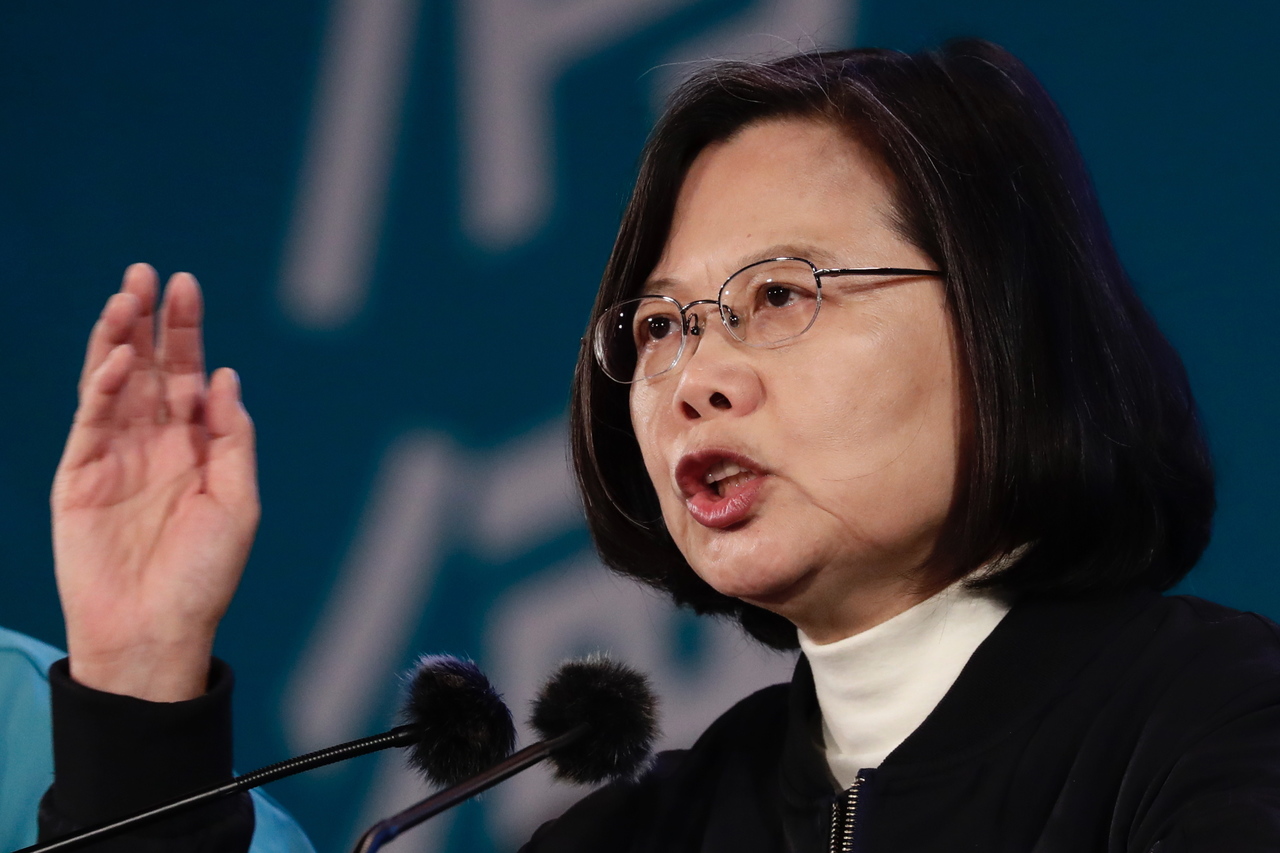Tsai Ing-wen urges China to review Taiwan policy after election win, says Taiwan is already independent
Sign up now: Get ST's newsletters delivered to your inbox

Taiwan President Tsai Ing-wen said she hopes China can understand the opinion and will expressed by the Taiwanese people.
PHOTO: EPA-EFE
Katherine Wei
Follow topic:
TAIPEI - President Tsai Ing-wen on Wednesday (Jan 15) called on China to reconsider its current Taiwan policy, saying that the island is already an independent country, just days after securing her re-election in a landslide victory.
She added that Taiwan does not need to formally declare its independence.
"We are an independent country already and we call ourselves the Republic of China, Taiwan," said Ms Tsai in her first post-election interview with the BBC.
Comments along such lines have enraged Beijing. Just hours after her interview, China's Cabinet-level Taiwan Affairs Office (TAO) retorted, saying Taiwan's future should be decided by "all the people of China".
"It's difficult to shake a mountain, (like) it is to shake the '1992 consensus'," said TAO spokesman Ma Xiaoguang in a press conference on Wednesday, referring to the tacit agreement between Beijing and Taipei that there is "one China", with each side having a different interpretation of what that "one China" means.
The TAO's rebuttal was in response to Ms Tsai's comments in her victory speech last Saturday, when she said one of the four pillars of establishing peaceful talks with China is to allow Taiwanese people to decide their own fate.
The other three principles are peace, parity and dialogue.
"We're a successful democracy, we have a pretty decent economy... we deserve respect from China," said Ms Tsai.
As for what she can offer to pave the way for any cross-strait ice-breaking, Ms Tsai said the ball was back in China's court, meaning the point is moot if China is not ready to talk.
"I think it's for the Chinese to have this preparedness to face the reality. If they are not prepared, whatever we offer won't be satisfying to them," said Ms Tsai.
The reality Ms Tsai is referring to includes her own re-election by some eight million votes, the highest a presidential candidate has ever received in Taiwan. She said her victory is a "strong message from the Taiwanese people" about how fed up they were with China's constant threats to unify the island, which Beijing considers a wayward province.
Ms Tsai also held a press conference on Wednesday, announcing her plans to keep her current Cabinet and elaborating on the Anti-Infiltration Act that takes effect the same day.
Passed by the legislature on Dec 31, the law aims to prevent foreign forces from meddling in Taiwan's direct elections and other forms of democracy, particularly interference from China.
The Act is not without its controversies, and has been heavily criticised by opposition Kuomintang and business owners who spend the majority of their time working in China.
But Ms Tsai stressed that there is a high bar for prosecution, and that the law is not aimed at ending communication between people on both sides.
"As long as you are not acting under the Chinese government's orders, entrusted or sponsored by it to illegally make political donations, campaign or lobby on behalf of a candidate, disrupt assemblies or marches, (association with China) is considered 'normal', and will not be affected," said Ms Tsai.
She has asked the Cabinet, or Executive Yuan, to be on the lookout for related fake news and to clarify when needed. The government is up against criticisms that the Act is a precursor to the suppression of free speech and dissent, just like between 1949 and 1987 when Taiwan was under martial law.
Ms Tsai said there will be a team of experts to explain to the people what specific actions are illegal under the Act, and a service window at the Straits Exchange Foundation, a semi-official body that oversees relations between Taiwan and China, for those who want to get their information first hand.
Under the Act, no individuals or organisations sponsored by foreign powers are to make political donations or campaign for Taiwanese election candidates. Violators will either face up to five years behind bars and an additional fine of NT$10 million (S$450,000).
Those who reveal information concerning Taiwan's national security to foreign countries can be fined NT$5 million and jailed for three years.
Meanwhile, the opposition Kuomintang on Wednesday took steps to address its election loss.
Younger party members have been agitating for reforms after KMT candidate Han Kuo-yu lost to Ms Tsai by about 20 percentage points and the party failed to win its target of more than half of the legislative seats.
After a central standing committee meeting, the party's chairman Wu Den-yih and four executive officials resigned to take responsibility for the election flop.
The party also released a seven-point report that looked into the reasons for its defeat.
It cited how the ruling Democratic Progressive Party has been able to capitalise on the unease over the idea of China's "one country, two systems" policy in Hong Kong being imposed on Taiwan. Protests in Hong Kong, triggered by a proposal to allow extraditions to mainland China, have morphed into a wider movement for democratic freedoms and against China's tightening control over Hong Kong.
The report also touched on how the party had failed to appeal to younger Taiwanese, whose votes are said to have helped the DPP at the ballots.

